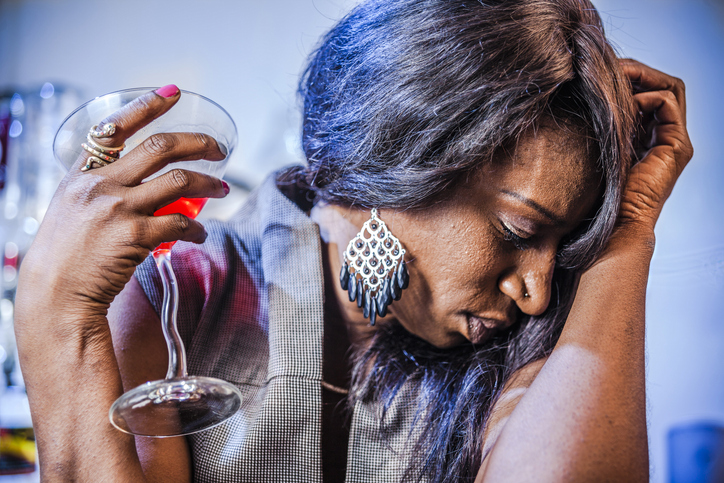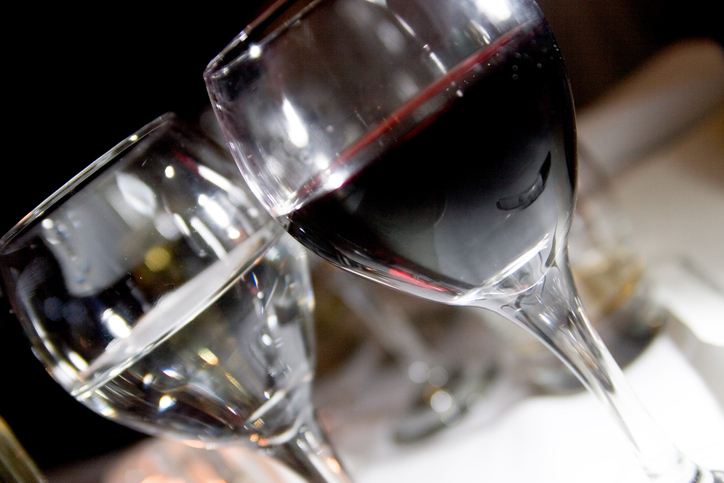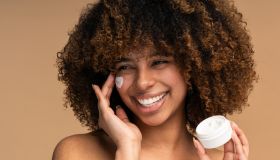How Alcohol Damages Your Skin
How Alcohol Transforms Your Skin — And The Simple Way To Reduce The Damage

Source: Alex Potemkin / Getty
If you’re aiming for glowing, healthy skin in 2025, it might be time to reconsider your alcohol intake. Alcohol is a diuretic, which means it dehydrates the body, causing a loss of essential vitamins and nutrients that are crucial for skin health, according to the Health Service Executive.
Dehydration can lead to wrinkles, and dull, grey-looking skin while also depleting vital nutrients like Vitamin A. This vitamin plays a key role in wound healing, anti-aging, the production of collagen, and treating conditions like rosacea, which causes redness, dilated blood vessels, and small, pus-filled bumps on the face.
In addition, alcohol can disrupt the body’s blood pressure balance, affecting healthy blood flow to the skin. Dr. Imogen Bexfield, founder of White Swan Aesthetics in the UK, explains that this disruption can lead to bloating and water retention, particularly in the face.
“It causes the skin to flush red and also for the blood pressure to be unbalanced. The blood vessels can over-stretch and leave unsightly spider veins and also cause the face and body to be puffy,” Dr. Bexfield told Glamour.

Source: Prostock-Studio / Getty
RELATED CONTENT: A ‘Natural Lube’ — Drinking This Trending Fruit Water May Improve Your Sex Life
Millions of Americans struggle with alcohol addiction.
According to the 2023 National Survey on Drug Use and Health (NSDUH), 28.9 million people ages 12 and older (10.2% of this age group) experienced an alcohol-related disorder in the past year. As a result, individuals who consume alcohol excessively are more prone to skin infections due to impaired immune function, nutritional deficiencies, and increased risk of physical trauma, the Indian Journal of Private Psychiatry notes.
Alcohol profoundly impacts immune function and alters the skin’s blood flow, which can lead to a higher prevalence and severity of skin disorders, especially in individuals who consume more than 500 mL of alcohol per day over a period of 10 years or more. Excessive alcohol consumption has also been shown to worsen certain skin conditions, including psoriasis and discoid eczema. A 1971 study by Rosset and Oki found that 43% of male alcoholics and 33% of female alcoholics suffered from skin diseases, with 44% of them experiencing one or more skin conditions.

Source: andipantz / Getty
You can see improvement in your skin immediately after abstaining from alcohol.
If you’re working towards quitting alcohol, the benefits for your skin can be noticeable in a surprisingly short time. Dr. Bexfield explains that it only takes 28 days for your skin to “renew itself” after you stop drinking.
“This process varies from person to person and is age dependent, so to see a difference in the condition of your skin you would need to give up drinking for at least a month to see an improvement.”
If cutting out alcohol entirely feels difficult or unrealistic, Dr. Bexfield suggests opting for clear liquors that do not contain added sugars or preservatives.

Source: Alex Potemkin / Getty
“The sugar in cocktails can spike insulin levels which causes numerous negative effects and can make the skin lifeless and pale.”
Ideally, Dr. Bexfield recommends limiting alcohol consumption to no more than 1-2 units per day. And don’t forget to hydrate—aim for a glass of water between each alcoholic drink, and try to drink two glasses of water before bed on nights when you indulge.
For help cutting down on problem drinking, head over to the National Institute on Alcohol Abuse and Alcoholism.










